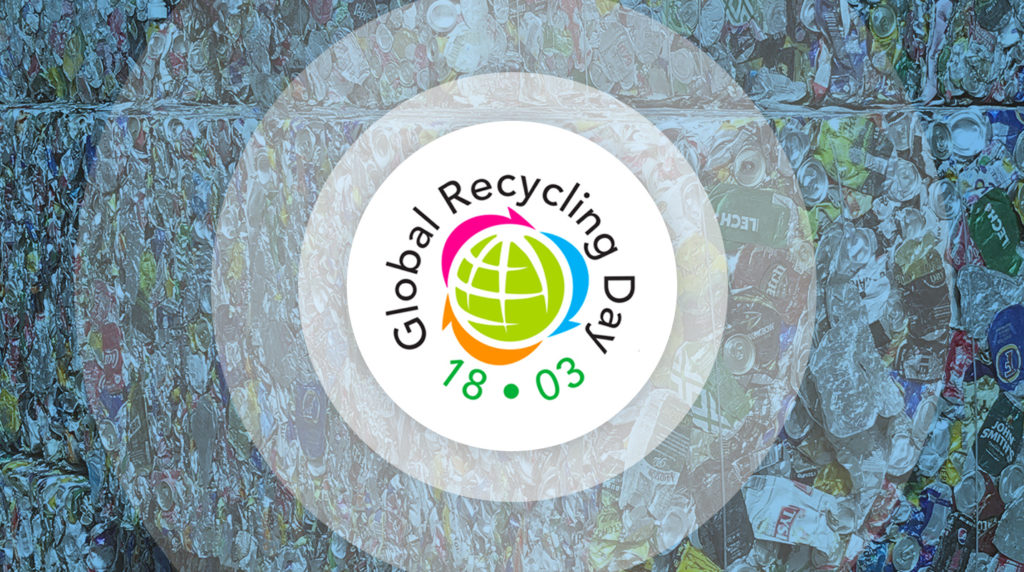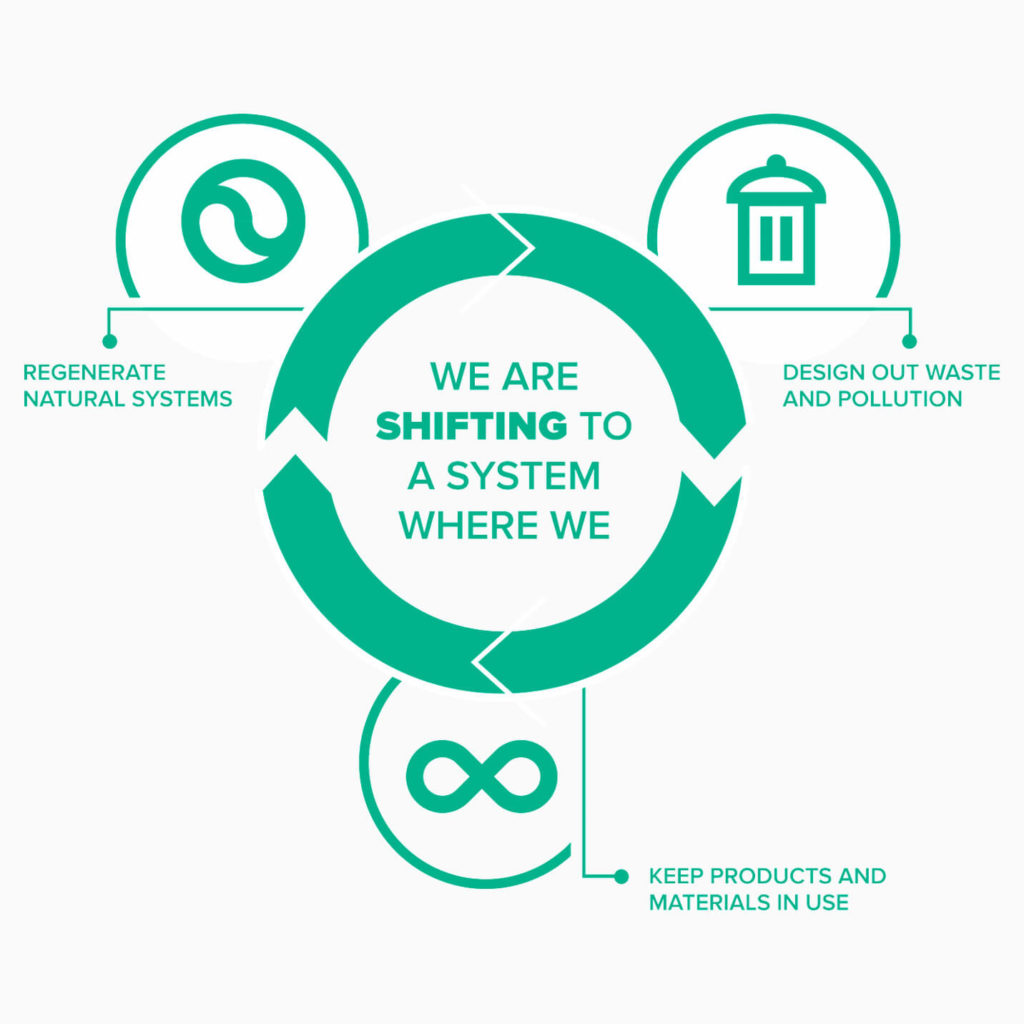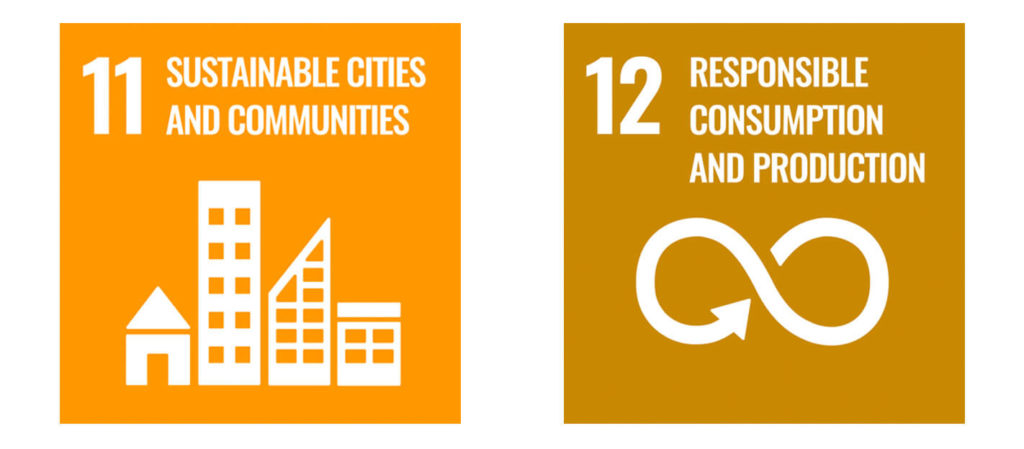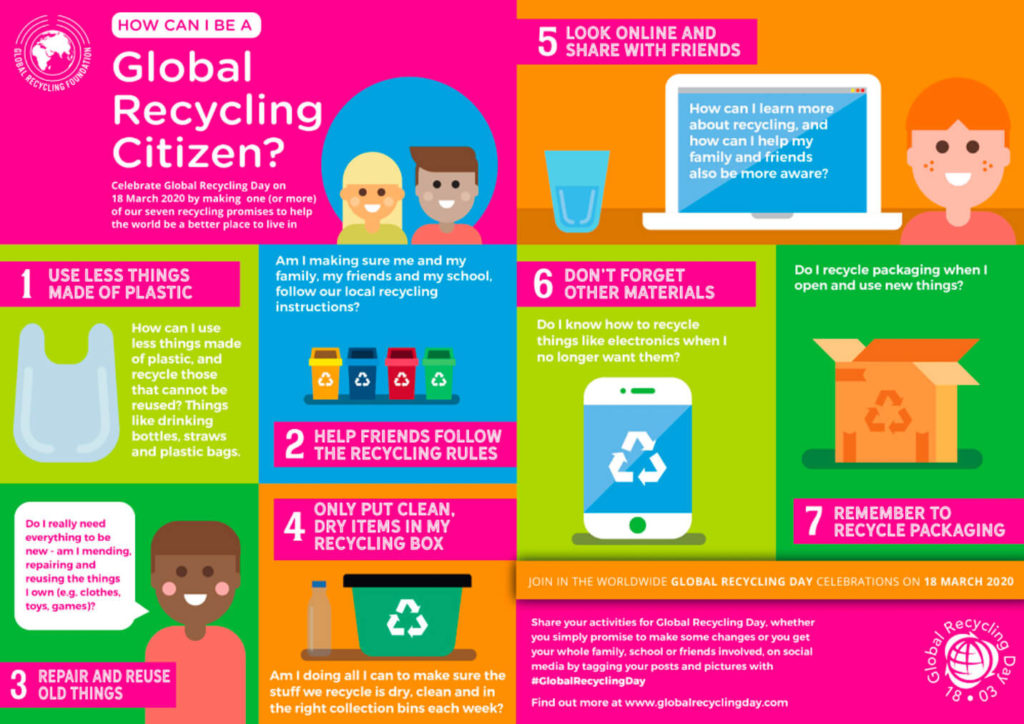

Happy Global Recycling Day!
With all that is going on around the world and our communities right now, I’m finding it difficult to focus on anything particularly productive but I still wanted to post this today as recycling is something I’ve been passionate about for a long time. I’ve completed various projects for waste management companies, and I find the logistics and equipment involved in collecting our waste, separating it into different materials, processing it and turning it into something new absolutely fascinating.
Researching this blog post made me realise how much we all consume on a daily basis and how much of it we throw away in the traditional Linear Resource Model.
TAKE
Resources from the ground
MAKE
Products which are used
WASTE
When the products are no longer needed or wanted
Moving to a Circular Economy involves designing out waste and pollution, considering how materials and products can be kept in use for longer and regenerating the natural systems around us.

Did you know:
- That there are 6 main resources - water, air, oil, natural gas, coal and minerals? And nearly all our food, belongings and communities are built around consuming them?
- In 2017, we used a year’s worth of the earth’s natural resources in just seven months?
- The earth yields billions of tons of resources every in year? In 2017, worldwide material consumption reached 92.1 billion tons which is a 254 per cent increase from 27 billion in 1970?
- In 1990 some 8.1 tons of natural resources were extracted per person, while in 2015, it was almost 12 tons per person?
- Globally, 2 billion people do not have access to waste collection services and 3 billion people lack access to controlled waste disposal facilities?
- It is estimated that the total waste generated in the world will double from nearly 2 billion tons in 2016 to about 4 billion tons by 2050?
(Sources: UN Sustainable Development Goals and Global Recycling Day Seventh Resource)
Recycling is the way that we can prevent finite resources being wasted and landfilled and can be described as the Seventh Resource. Recycling:
- Reduces energy consumption – recycling an aluminium can saves 95 % of the energy needed to make new cans from raw materials
- Reduces raw material consumption – recycled materials supply 40% of the world’s raw material needs
- Employees people - approximately 1.6 million people worldwide are employed in processing recyclables
- Helps combat climate change - recyclables save over 700 million tonnes in CO2 emissions a year
- Helps to contribute to UN Sustainable development goal Number 11 Sustainable Cities and Communities (make cities and human settlements inclusive, safe, resilient and sustainable) and Number 12 Responsible consumption and production (ensure sustainable consumption and production patterns)

I think the most important message is to remember that your rubbish doesn’t just disappear, it goes somewhere and affects someone - it is so important that we all reduce what we consume and dispose responsibly of anything that we don’t want any longer. However, I think there is a limit to what we can achieve as individuals without wider societal changes to legislation, waste collection contracts and waste processing facilities as well as significant changes to design, packaging, transportation and retail. I intend to keep on recycling at home and at work, as well as encouraging my network and clients to do so, but I also need to make more effort to publicly call out bad packaging (4 tins of tuna wrapped in plastic anyone?) as well as emailing my MP and local council about the importance of wider joined up thinking about recycling infrastructure across the country.
